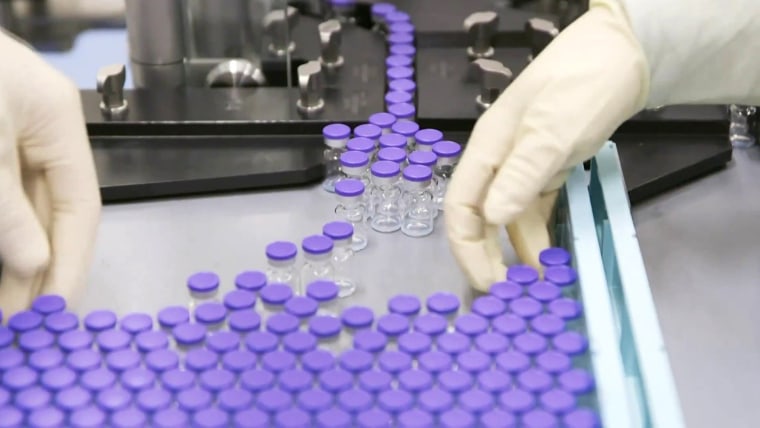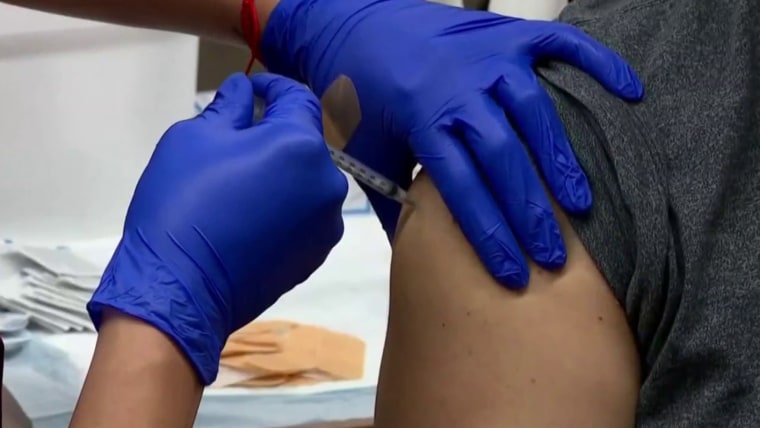Andrew Kirk has been educating his Advanced Placement human geography students on the Covid-19 pandemic in real time.
The students at Sunset High School in Dallas have used maps to compare coronavirus caseloads in places that are more heavily vaccinated with those that are not. They have practiced how to find and interpret guidance and directives from experts. And just as important, though perhaps less expected, they are learning how to be skeptical — of social media, each other and even their parents — so they can better distinguish the differences between fact and fiction, a skill that only seems to get tougher to master in the age of misinformation.
“It’s surprisingly difficult even for adults to really identify clear disinformation or misinformation,” Kirk said.
Educators have been grappling with how to help students become more discerning consumers of information for several years now as social media has allowed lies, fake news and falsehoods to spread broadly and quickly.
But some educators say teaching their students how to conduct research has now become one of the most critical skills they impart as misinformation abounds about potentially life-threatening topics like vaccines, masks and purported Covid cures.
“Obviously, the stakes are much different with something like this,” Kirk said. “Educating people and having those conversations about claims and evidence, not only is it part and parcel of just creating or maintaining the school as a space of inquiry, it also falls under keeping the school and classroom a safe environment.”
“It's critical to how I would see my role as a teacher,” he said.
Adrian Reyna, who teaches high school U.S. history to eighth graders in San Antonio, agrees.
“One of the fundamental things that we are hopefully teaching young people how to do is to read critically and think critically,” Reyna said.
“It's very much a life skill, being able to analyze the information that is coming to you, that you're processing, and then to be able to analyze it in a way that helps you determine whether or not this is legitimate,” he said. “Is this based in fact? Is this somebody's opinion?”
Teachers said they guide their students to do things such as looking for .edu and .org sites, reading vetted journals, investigating sources of information, corroborating claims and always questioning the background and motives of their sources.
Reyna and others said they are trying to get their students to get in the habit of critically evaluating the deluge of information they receive.
It can be easier said than done.
Anton Schulzki, president of the National Council for the Social Studies, said lessons are sometimes drowned out by the messages students are getting from people they trust outside of school.
“If you're coming from a place where what you hear at home is the conspiracy theories, sometimes that's going to play more of a role than what we can do,” said Schulzki, who also teaches social studies at a high school in Colorado Springs, Colorado. “That makes our job that much harder.”
Reyna said he encountered one middle school student who told him he was not going to get vaccinated because his mother said “the Covid vaccine kills people.”
Reyna said he asked the student where that information had come from and offered up his own research and evidence about the vaccine in return, being careful not to alienate the student.
“It's much more of just building an understanding, and as a history teacher, that's what we do all the time,” he said. “We might have competing narratives; we might have competing information. So, let's have a discussion about it. Let's base our discussion on facts and evidence, and then let's base our decision and our thinking on the evidence that we've uncovered.”
Michael Reese, who teaches dual credit U.S. history and AP human geography at a high school in El Paso, Texas, said he reminds students at the start of each school year that “today in the United States, there is almost an unquantifiable number of potential sources of information that you could use to learn about topics” to make sense of the world.
“We look at the effect of the trend of most Americans getting their daily news and information from social media outlets and what a devastating effect that's having on just basic knowledge about the world, about our country, about how our government operates, about public health, about everything,” he said.
He said he also introduces his students to a media bias chart evaluating news sources on their news value, reliability and partisan bias, and each day, they watch at least a portion of “PBS NewsHour.”
Also, Reese has attached a photocopy of his vaccination card to his teacher badge.
“It's constantly on display and so everybody knows that Mr. Reese is vaccinated and Mr. Reese endorses vaccinations,” he said. “I don't even have to say it because it's right there on my lapel.”
As part of his lessons, students also learn about the history of vaccination and vaccination mandates, including the polio vaccine and the discredited study that falsely linked the measles vaccine with autism.
Reese said his school has largely been a success story in terms of achieving student buy-in to wearing masks in school. But on the first day of a mask mandate, there was a parent who demanded their child be exempt in the form of a letter and threatened legal action.
Reese said during the few days the student was not wearing a mask, he gave the class instruction based on evidence and reliable sources, and eventually, “the student has voluntarily started to mask.”
"with" - Google News
September 30, 2021 at 12:21AM
https://ift.tt/3ulZG2u
Teachers grapple with combating misinformation in age of pandemic - NBC News
"with" - Google News
https://ift.tt/3d5QSDO
https://ift.tt/2ycZSIP
Bagikan Berita Ini
















0 Response to "Teachers grapple with combating misinformation in age of pandemic - NBC News"
Post a Comment